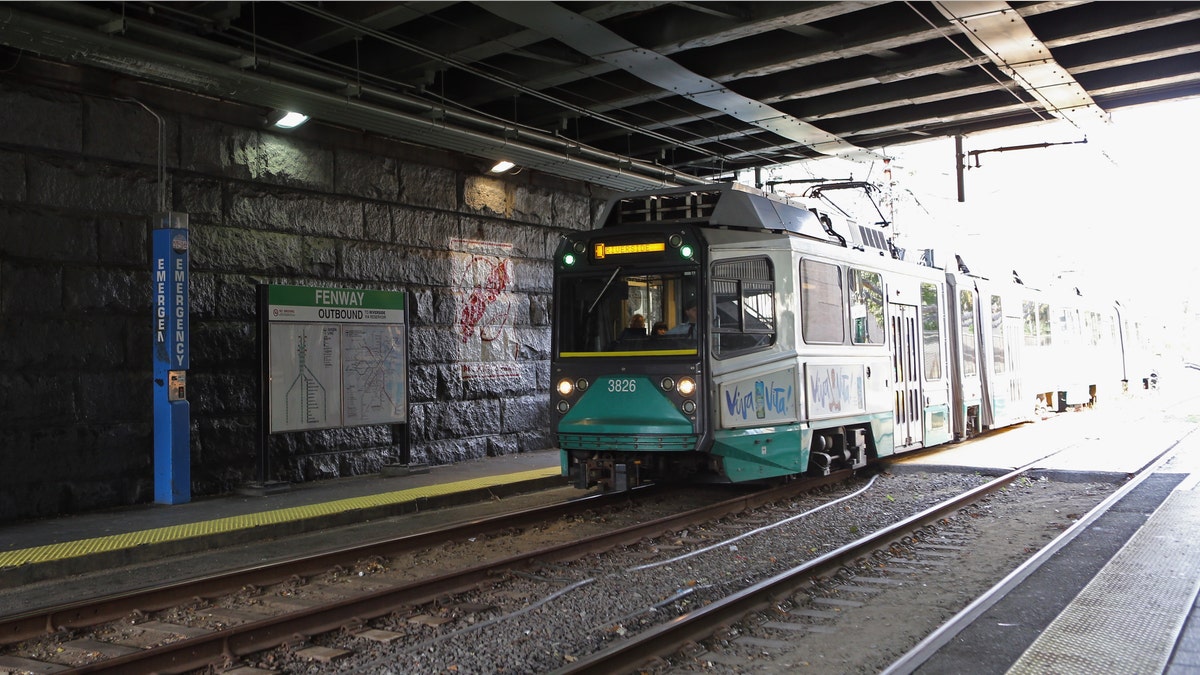
BOSTON, MA - OCTOBER 05: A scenic view the Green Line T line as photographed on October 5, 2012 in Boston, Massachussets. (Photo by Bruce Bennett/Getty Images) (2012 Getty Images)
The test went thusly: If train commuters suddenly were exposed to immigrants speaking a foreign language, how would they react?
The answer, a Harvard professor’s experiment found, was that commuters developed stronger negative views of immigrants after a few initial days of consistent exposure, but the disapproving views leveled off over time.
The study, which was conducted on various train platforms in the Boston metro area, consisted of Mexican immigrant men, mainly in their 20s, standing on nine platforms every day for more than a week, according to the Boston Globe.
Initial surveys of the commuters, 85 percent of whom identified themselves as white, conducted after about three days of being around immigrants showed that respondents favored stricter policies regarding immigration, but then softened their stance, though they remained more firm in their views of how immigrant issues should be handled than they were before the experiment began.
Author Ryan D. Enos saw the study as proof that the more exposed to those unlike themselves people are, the more people are likely to change their attitudes toward them, including in a positive way.
“These things like public transit and the way we build our cities very much affect how we interact with people and how we get along as groups,” the Globe quoted Enos, assistant professor of government at Harvard and author of the study, as saying. “When we invest in infrastructure, we bring intergroup harmony by encouraging people to interact.”
Enos said he decided the rare approach of conducting a study using rail commuters because of the difficulty of finding many real-world environments in which race relations can be observed over a period of time.
“We’re probably not going to start randomly buying houses in a neighborhood and move people in,” Enos said, according to the Globe. “We wanted to use the infrastructure of a city to simulate changes that people would experience if they were exposed to different types of people in their day-to-day life. We thought, ‘Where in the world do we see that kind of routinized behavior?’"
The immigrants reported to Enos what kind of reactions they received from commuters.
“Because we are chatting in Spanish, they look at us,” wrote one of them wrote to Enos. “I don’t think it is common to hear people speaking in Spanish on this route.”
Commuters received a survey to complete before and after the immigrants first arrived, and were given $5 gift cards for participating.
After the first three days, the respondents expressed support for such government policies as making English the official language, and for strict immigration enforcement laws.
“People’s attitudes moved sharply in this exclusionary direction,” Enos said. “I was surprised that the effects were strong.”
Those positions grew less adamant after about 10 days but, the newspaper noted, they nonetheless remained stronger in favor of strict immigrant-related laws than were before the immigrants appeared on the rail platforms.
“Regions predicted to become more diverse should expect initial conflict,” Enos said. “However, these results also suggest that more prolonged contact or interpersonal interaction can diminish initial exclusionary impulse.”
Sam R. Sommers, a psychology professor at Tufts University, agreed.
“The initial effects of diversity can be negative and tough,” Sommers said. “But, with time, negative effects on cohesion and morale begin to diminish, and diversity starts to become an asset.”
One of the immigrants noted in his comments to Enos: “People have started to recognize and smile to us.”
Follow us on twitter.com/foxnewslatino
Like us at facebook.com/foxnewslatino
